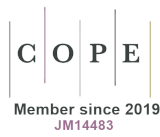Idyll – dualism – catastrophe. On the relationship between the protagonist of J. W. Goethe’s The Sufferings of Young Werther and nature
DOI:
https://doi.org/10.18778/2299-7458.12.13Keywords:
J. W. Goethe, Werther, nature, ecologyAbstract
This article explores a reading of J. W. Goethe’s novel The Sufferings of Young Werther in terms of the protagonist’s relationship with nature. The chronological analysis of Werther’s nature writings incorporated in his letters to Wilhelm addresses his experiences, attitudes, feelings and reactions in relation to the natural world, their influence on his views, as well as the relationship between Werther’s individualism and social position and his ecological awareness. Werther sees nature either as an aesthetic object and a source of authenticity and freedom, or as a destructive force that threatens man. From this perspective, it appears that the source of the protagonist’s predicament and tragic end is his inability to apprehend the full scope of nature, the overwhelming effect of a dualistic view that makes him perceive nature as either unilaterally benevolent and auspicious or, radically destructive and causing decay.
Downloads
References
Biese A., Das Naturgefühl im Wandel der Zeiten, Leipzig 1926.
Google Scholar
Bollmann S., Der Atem der Welt: Johann Wolfgang Goethe und die Erfahrung der Natur, Stuttgart 2021.
Google Scholar
Buschmeier M., Die Idylle bei Salomon Geßner, Friedrich (Maler) Müller und Johann Heinrich Voß. Kritik und Transformation einer Gattung, [w:] Sturm und Drang: Epoche – Autoren – Werke, red. M. Buschmeier, K. Kauffmann, Darmstadt 2013, s. 220–237.
Google Scholar
Einführung in die Literatur des Sturm und Drang und der Weimarer Klassik, red. M. Buschmeier, K. Kaufmann, Darmstadt 2010.
Google Scholar
Goethe J. W., Cierpienia młodego Wertera, przeł. F. Mirandola, oprac. Z. Zagórowski, Kraków 1922.
Google Scholar
Goethe J. W., Rez. zu: Die schönen Künste in ihrem Ursprung, ihrer wahren Natur und besten Anwendung betrachtet von J. G. Sulzer, Leipzig 1772, „Frankfurter gelehrte Anzeigen”, nr 101 [18. Dez. 1772], s. 801–807, http://www.zeno.org/nid/20004855752 [dostęp: 22.09.2023].
Google Scholar
Goodbody A., Nature, Technology, and Cultural Change in Twentieth-Century German Literature: The Challenge of Ecocriticism, London 2007.
Google Scholar
Gose H., Goethes Werther, Halle 1921.
Google Scholar
Grathoff D., Der Pflug, die Nußbäume und der Bauernbursche: Natur im thematische Gefüge des Werther-Romans, „Goethe-Jahrbuch” 1985, nr 102, s. 184–198.
Google Scholar
Krebs R., Herder, Goethe und die ästhetische Diskussion um 1770. Zu den Begriffen „énergie“ und „Kraft“ in der französischen und deutschen Poetik, „Goethe-Jahrbuch” 1995, nr 112, s. 83–96.
Google Scholar
Kricher J., The Balance of Nature: Ecology’s Enduring Myth, Princeton 2009.
Google Scholar
Pascal R., Der Sturm und Drang, Stuttgart 1977.
Google Scholar
Rousseau J.-J., List do Woltera o Opatrzności, [w:] J.-J. Rousseau, Umowa społeczna, oprac. B. Baczko, Warszawa 1966, s. 534–544.
Google Scholar
Schmidt A., Natur, [w:] B. Witte (red.), Goethe-Handbuch in vier Bänden, t. 4/2, Stuttgart [i in.] 1998, s. 755–776.
Google Scholar
Sengle F., Wunschbild Land und Schreckbild Stadt. Zu einem zentralen Thema der neueren deutschen Literatur, „Studium Generale” 1963, nr 16, s. 619–631.
Google Scholar
Sturm und Drang. Epoche – Autoren – Werke, red. M. Buschmeier, K. Kaufmann, Darmstadt 2013.
Google Scholar
Sullivan H. I., The dark pastoral: A trope for the anthropocene, [w:] German Ecocriticism in the Anthropocene, red. C. Schaumann, H. I. Sullivan, New York 2017, s. 25–44.
Google Scholar
Downloads
Published
Versions
- 2024-02-09 (2)
- 2023-12-21 (1)
How to Cite
Issue
Section
License

This work is licensed under a Creative Commons Attribution-NonCommercial-NoDerivatives 4.0 International License.










